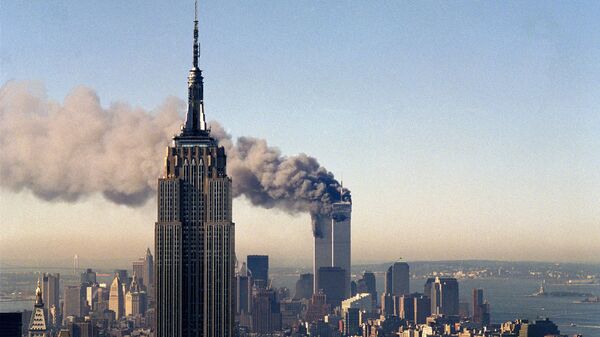A few days ago on March 23, Fire Department Battalion Chief David M. Lachenauer died peacefully at his home, aged 61, after a long battle with cancer. He was the latest in a long line of emergency workers and other first responders who worked in the debris from the destruction of the World Trade Center towers to have died from 9/11-related illnesses. Yonkers fire union president and 9/11 first responder Barry McGoey told local news:
"We've had numerous members who are deceased now, relatively young men, who are deceased with 9/11 illnesses."
Sadly the effects of 9/11 are ongoing, most recently with the 172nd and 173rd deaths of firefighters from 9/11 related illnesses. Cases of #asbestosrelatedlungcancer and #mesothelioma are likely to be seen as the first responders were exposed to #asbestos https://t.co/CEeqEMjol9
— BT Asbestos Claims (@btasbestos) 26 марта 2018 г.
McGoey hopes that the new bill will help to remedy the problem, by extending unlimited sick leave benefits to all 9/11 first responders, including utility workers who worked on the World Trade Center pile. He pointed out that, "Many first responders from the surrounding community and all of the state of New York, they're becoming ill many years later and are forced to use their own sick leave."
Governor Andrew Cuomo signed a bill last year that granted limitless sick leave to 9/11 first responders from within New York city, and those who had subsequently moved out to the surrounding boroughs. The new legislation would provide the same help to all first responders anywhere in the state. State Senator Terrence Murphy, who co-sponsored the new legislation, said, "This is just the right thing to do for people that came to protect us in a time of need."
Thomas Phelan, firefighter who evacuated hundreds on 9/11, dies of cancer at 45. https://t.co/NBFj63W0Tq Such a shame. So many first responders who saved so many lives — at great risk to their own — have died from or have #cancer.
— Ted Okon (@TedOkonCOA) 20 марта 2018 г.
The bill was introduced into the Senate last week and will now go to the state Assembly.
Did the EPA Lie About the Air Quality?
Shortly after the 9/11 attacks, with large parts of Manhattan covered in the dust from the destruction of the twin towers, the Environmental Protection Agency (EPA) said there was nothing to worry about. EPA Administrator Christine Todd Whitman said that, "Given the scope of the tragedy from last week, I am glad to reassure the people of New York… that their air is safe to breathe and the water is safe to drink."
After five years of emergency workers and first responders developing serious health problems, in 2006 an EPA scientist blew the whistle, saying the EPA had lied about the air quality and the health risks, and were responsible for those who were suffering. Dr Cate Jenkins said, "This dust was highly caustic, in some cases, as caustic and alkaline as Drano."
In 2011 the first long-term study of the health effects of 9/11 found a high incidence of several conditions, including asthma, post-traumatic stress disorder (PTSD), depression, sinusitis, and gastroesophageal reflux disease (GERD). The study examined more than 27,000 police officers, construction workers, firefighters, and municipal workers and found that 28 percent had asthma, 42 percent had sinusitis, and 39 percent had GERD. 42 percent of patients had abnormal lung function tests, 28 percent of rescue and recovery workers had symptoms of depression, 32 percent experienced symptoms of PTSD, and 21 percent had symptoms consistent with panic disorder.
[Feature] Protecting 9/11 First Responders: Since the 2001 attacks, over 100 law enforcement officers have died from 9/11-related illnesses due to sustained toxin exposure. Finally, our… https://t.co/ajzIh7To75 pic.twitter.com/1KWmIcXiYf
— POLICE Magazine (@PoliceMag) 23 марта 2018 г.
It would be a further five years before Whitman apologised for her misleading statements. In 2016, on the eve of the 15th anniversary of the attacks, she said, "I'm very sorry that people are sick. I'm very sorry that people are dying and if the EPA and I in any way contributed to that, I'm sorry. We did the very best we could at the time with the knowledge we had."




